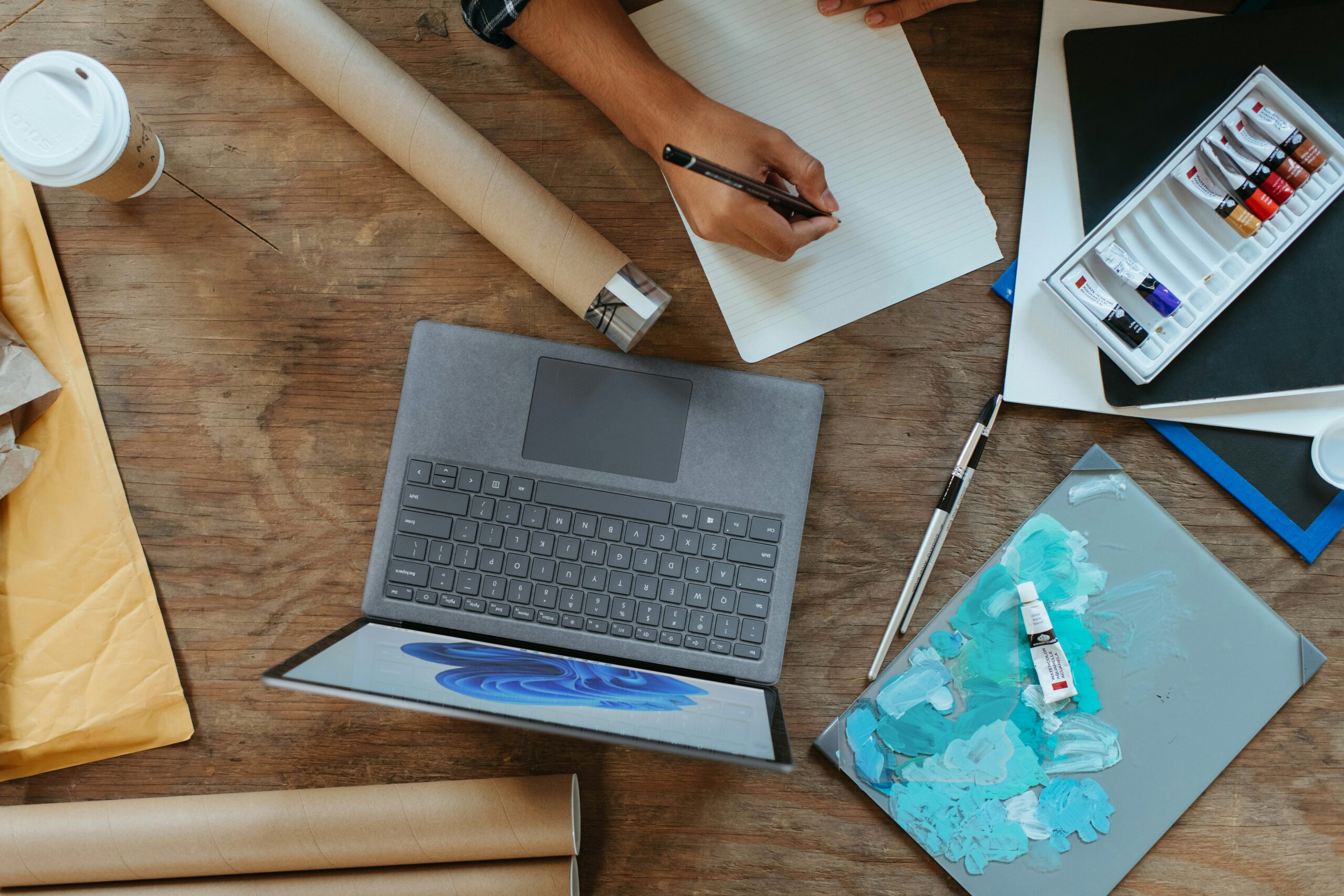What steps can we take to ensure our electronics run smoothly and have a long lifespan? Maintaining our electronic devices is crucial to keeping them in top condition and avoiding unexpected breakdowns. Proper maintenance can help us save money and reduce the inconvenience of devices failing when we need them the most. Let’s dive into the ultimate guide to maintain our electronics efficiently.

This image is property of Pexels.com
Importance of Electronics Maintenance
We often rely on our electronics for work, communication, entertainment, and more. Neglecting regular maintenance can lead to performance issues, data loss, or permanent damage. It’s essential to establish a routine that ensures our devices operate efficiently and last longer.
General Maintenance Tips
Most maintenance practices apply across various types of electronics. Here are some general maintenance tips:
- Regular Cleaning: Dust and grime can accumulate and cause overheating or other performance issues.
- Proper Storage: Keeping devices in a safe, dry place protects them from physical damage and environmental hazards.
- Firmware and Software Updates: Updating systems ensures we have the latest security patches and performance improvements.
Cleaning Your Devices
Accurate cleaning practices are vital for the longevity of our electronics. Here’s how we can effectively clean different types of devices:
| Device Type | Cleaning Method | Tips |
|---|---|---|
| Smartphones | Use a microfiber cloth, and gentle screen cleaner. | Avoid excessive moisture; keep ports dry. |
| Laptops | Use compressed air for keyboards, microfiber cloth for screens. | Make sure device is powered off before cleaning. |
| Television | Use a microfiber cloth, and screen cleaner. | Avoid using paper towels that can scratch the screen. |
| Game Consoles | Use a can of air to blow dust out of vents, external cleaning with microfiber cloth. | Ensure it’s unplugged before cleaning. |
Specific Maintenance for Different Electronics
Different electronics have unique maintenance needs. Understanding these specifics helps us keep each device in optimal condition.
Smartphone Maintenance
Our smartphones are essential for daily activities. To ensure they perform well:
- Battery Care: Avoid letting the battery drain completely. Keep the charge between 20% and 80% for optimal health.
- Storage Management: Regularly clear cache and unnecessary files to free up storage space and speed up the device.
- Protective Cases: Use high-quality cases and screen protectors to prevent physical damage.
Laptop Maintenance
Laptops are versatile devices used for work, gaming, and more. Here’s how to keep them running smoothly:
- Cooling Solutions: Use cooling pads to prevent overheating, especially during intensive tasks.
- Disk Cleanup: Regularly run disk cleanup tools to remove temporary files and defragment the hard drive for better performance.
- Software Maintenance: Keep the operating system and software updated, run antivirus scans, and remove bloatware.
Television Maintenance
To ensure our TV delivers the best viewing experience:
- Proper Placement: Place the TV in a ventilated area to prevent overheating.
- Calibration: Regularly calibrate settings like brightness, contrast, and color to enjoy optimal picture quality.
- Firmware Updates: Keep the TV’s firmware updated for the latest features and performance fixes.
Game Console Maintenance
Gamers know the importance of a well-maintained console. Here’s what we can do:
- Ventilation: Keep the console free from dust and ensure proper airflow to avoid overheating.
- Software Update: Regularly update the console software for new features and bug fixes.
- Controller Care: Clean controllers regularly and replace worn-out parts like thumbsticks and buttons.
Security and Software Maintenance
Ensuring our electronics are secure and running the latest software is critical for both performance and data protection. Here are some tips:
Updating Firmware and Software
Regular updates are essential. By staying up-to-date, we ensure our device has the latest security patches, features, and performance improvements. Here’s how to manage updates:
- Automatic Updates: Enable automatic updates whenever possible to ensure we don’t miss critical patches.
- Manual Checks: Periodically check for updates manually, especially for devices that don’t update automatically.
- Backing Up Data: Before updating, back up important data to avoid any loss during the update process.
Antivirus and Security Software
Protecting our devices from malware and other threats is crucial. Here’s how to keep them safe:
- Install Reliable Antivirus: Choose a reputable antivirus program and keep it updated.
- Regular Scans: Schedule regular scans to detect and remove any malicious software.
- Secure Browsing: Use secure browsers and avoid downloading from untrustworthy sources.

This image is property of images.unsplash.com.
Physical Protection and Handling
Physical damage is one of the leading causes of electronic failure. Proper handling and protection can save us from costly repairs.
Using Protective Cases and Covers
Investing in quality protective cases can drastically reduce the risk of damage. Here’s what to consider:
- Materials: Choose cases made from durable materials like silicone, rubber, or sturdy plastics.
- Fit: Ensure the case fits snugly and offers protection without obstructing functionality.
- Additional Features: Look for features like impact resistance and water protection for added safety.
Handling with Care
Being mindful of how we handle our electronics can prevent damage. Consider these tips:
- Avoid Dropping: Keep devices away from edges of tables and secure them in bags or cases when not in use.
- Temperature Sensitivity: Avoid exposing devices to extreme temperatures which can damage internal components.
- Moisture Control: Keep electronics away from water and use protective barriers when necessary.
Extending the Lifespan of Specific Components
Some components require special attention, and taking care of them can significantly extend the lifespan of our devices.
Battery Care
Many of our devices rely on rechargeable batteries. Here’s how to care for them:
- Charge Cycles: Avoid letting the battery drain completely and try to keep the charge between 20% and 80%.
- Avoid Overcharging: Most modern batteries are designed to handle overcharging, but it’s still good practice to unplug once fully charged.
- Temperature Management: Keep away from heat sources as excessive heat can degrade battery performance.
Screen Protection
Screens are often the most vulnerable part of our devices. Protect them by:
- Using Screen Protectors: Apply high-quality screen protectors to guard against scratches and cracks.
- Cleaning Gently: Use appropriate cleaning solutions and tools to avoid damaging the screen surface.
- Avoiding Direct Sunlight: Prolonged exposure to direct sunlight can damage the display.
Storage Device Maintenance
Hard drives and SSDs store our critical data. Maintaining them is crucial:
- Regular Backups: Ensure we backup important data regularly to prevent data loss.
- Disk Defragmentation: For HDDs, periodically run defragmentation tools to optimize performance.
- Monitor Health: Use software tools to keep track of the drive’s health and performance metrics.
This image is property of images.unsplash.com.
Troubleshooting Common Issues
Even with diligent maintenance, issues might still arise. Knowing how to troubleshoot can save us time and frustration.
Identifying the Problem
Accurately identifying the issue is the first step in troubleshooting. Here’s how:
- Error Messages: Take note of any error messages or codes that appear.
- Behavior Patterns: Observe what activities lead to the problem. Is it during heavy use or random?
- Recent Changes: Any new software installations or hardware additions can sometimes cause issues.
General Troubleshooting Tips
- Restart Devices: Often, a simple restart can resolve performance issues or glitches.
- Check Connections: Ensure all cables and connections are secure.
- Run Diagnostics: Utilize built-in diagnostic tools to identify issues.
Professional Maintenance and Repair
Sometimes, professional help is necessary. Knowing when to seek it can save us from further damage.
When to Seek Professional Help
Certain situations call for professional intervention:
- Persistent Issues: If a problem persists despite troubleshooting, it might need professional attention.
- Physical Damage: Cracked screens, water damage, and internal component issues usually require expert repair.
- Warranty Considerations: If the device is still under warranty, professional service is often the safest and most cost-effective option.
Choosing a Reliable Repair Service
Selecting the right repair service is crucial:
- Certified Technicians: Ensure the repair service employs certified technicians.
- Reviews and Recommendations: Look for reviews and ask for recommendations to ensure reliability.
- Warranty and Guarantees: Choose services that offer warranties on their repairs.
Sustainable Electronics Practices
Extending the lifespan of our electronics is not only cost-effective but also environmentally friendly. Here are some practices to consider:
Recycling and Disposing of Electronics
When a device has reached the end of its life:
- E-Waste Recycling: Use certified e-waste recycling services to dispose of electronic devices responsibly.
- Data Wiping: Ensure all data is securely wiped from devices before recycling.
- Part Reuse: Sometimes, components from old devices can be repurposed or salvaged.
Energy Efficiency
Reducing energy consumption helps both the environment and our electricity bills:
- Power Saving Modes: Utilize power-saving modes on devices.
- Turning Off Devices: Turn off devices when not in use instead of leaving them on standby.
- Energy-Efficient Models: Choose energy-efficient models when purchasing new devices.
Developing Good Maintenance Habits
Consistency is key to effective electronics maintenance. Here’s how we can develop good habits:
Setting Regular Maintenance Schedules
- Monthly Checks: Set reminders for cleaning, software updates, and backups.
- Annual Reviews: Conduct a more comprehensive review and maintenance session annually.
Educating Ourselves and Others
- Stay Informed: Keep up with the latest maintenance tips and best practices through reliable sources.
- Share Knowledge: Educate family and friends about the importance and techniques of electronics maintenance.
Conclusion
Regular maintenance of our electronic devices is essential for ensuring they function well and have a longer lifespan. From cleaning and updates to proper handling and troubleshooting, these practices help us avoid headaches and expensive repairs. By adopting these habits, we can keep our devices running smoothly and make the most out of our investment.

